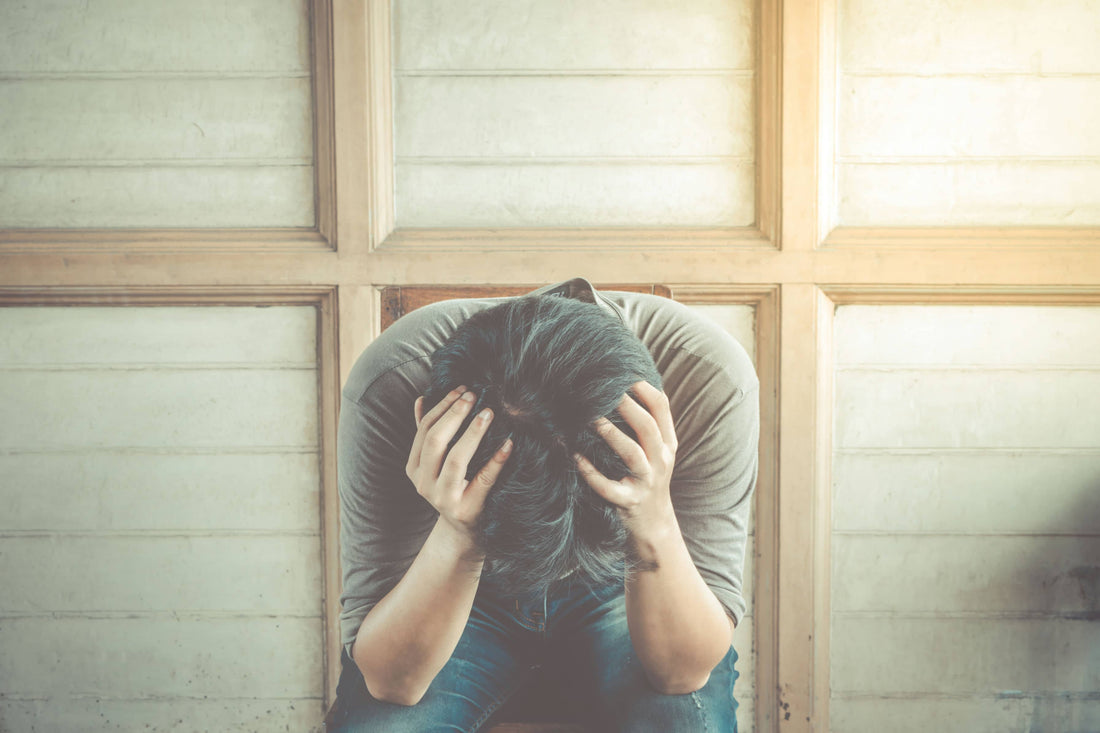Does it seem like your mind has it out for you when it comes to being able to fall asleep?
You’re not the only one! Our brains seem to have this annoying habit of fixating on worst-case scenarios for the future or reflecting negatively on our days when we try to catch some shuteye.
According to sleep experts, anxiety is the culprit that causes most of our woes and leads to us suffering from insomnia. And it’s not just mental changes, but physical ones, as well that are to blame for us staring up at the ceiling all night or tossing and turning our way into misery.
That’s the bad news – anxiety is the enemy of quality sleep. The good news is that we have the power to banish it, since anxiety is most often triggered by our own thinking.
Let’s talk about some ways that we can ditch negative thinking, and drift off to Dream Land quickly and easily – no prescriptions required!
Identify the Issue
Closely examining the source of your anxiety is the first step to banishing it. Are you worried that you’ll be unable to fall asleep, yet again? You’re most likely suffering from classic insomnia, and you might benefit from a trip to the doctor to discuss your best options for better sleep.
But if you find your mind spinning over stressors from your day, and you’re unable to fall asleep due to the thoughts and concerns that have taken up residence in your mind, you most likely have a case of general anxiety. You need to stop, breathe, and create space between you and your worries.
You can clear your mind and welcome sleep by simply asking yourself:
- What actually happened/was said?
- What are my thoughts on the situation?
- What feels right about how to handle it?
Taking the time to face what’s on your mind directly and give it the time and attention that it’s after in the first place will actually help you to move past it and onto falling asleep.
Ditch the Negativity
There has been some compelling research that shows placing your stressors into something physical and then throwing them away can be a great way to clear your mind of negative thoughts.
Grab some paper and a pen, and write down everything that you’re worried about. Everything. Once you’ve got it all out, crumple it up and literally dump your concerns. This helps tell your brain that bedtime isn’t the right time to be dealing with all of that stuff, and gives it the clue that sleep is the right next step.
Switch Things Up
If you find that you can’t fall asleep, you might benefit from getting up and moving around, instead of just staying in bed and suffering. When we spend most of our time in bed tossing and turning, stressing about the day, or watching TV in the hopes that we’ll drift off, we’re actually sending a message to our brains that the bedroom isn’t actually for sleep anymore.
Try moving out into another room and taking part in some quiet activities like reading or even coloring to give our your brain the opportunity to slow down and grow sleepy. Then move back to the bedroom when you feel ready to actually
get some sleep.
Change Your Bedtime
If you’re having trouble falling asleep on a regular basis, it might be time to readjust your sleep schedule. That could mean going to bed or earlier, or surprisingly enough, later. If you’re going to bed before you’re actually tired, you’re setting yourself up for having trouble going to sleep. Stay out of bed until you feel physically ready to go to sleep.
Quietly Engage Your Mind
When you find yourself just flat out unable to fall asleep, try engaging your mind in some quiet activities, such as drinking a cup of tea, listening to music, or practicing a bit of yoga. Just be sure to avoid the temptation of your electronics! Using your laptop or cell phone will only wake you up more, not help you catch some Zs.
Don’t Be Afraid to Ask for Help
Even though you can take solace in the fact that you’re far from alone when it comes to having trouble falling asleep due to negative thinking or anxiety, if you find that it’s becoming an issue in your everyday life, not just occasionally at bedtime, your best bet is to seek the guidance of a healthcare professional.
Don’t feel as if there’s something seriously wrong if you’re suffering from anxious thoughts. It’s simply a small problem with thinking and behavior patterns, and it’s very treatable.

